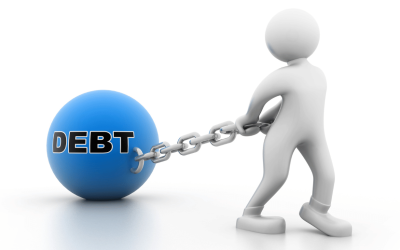How to prevent legal action
Sooner or later you may find yourself in a position where you just can’t afford to pay all your accounts on time. This could lead to legal action if left unattended.
Fortunately, there are ways in which legal action may be prevented. It is important that you prevent legal action at all costs and this article will show you how and why.
Firstly, let’s look at some statistics that shows us the state of the current credit landscape:
- 58% of people struggle to meet their monthly financial obligations
- 73% of disposable income is spent on servicing debt.
- 70% of credit applications are being declined based on bad credit ratings alone.
This means many of us are not able to make payments as we should and are therefore at risk of being handed over to collection agencies or attorneys.
In this article we will:
- Explain the possible consequences of being handed over
- Offer an alternative that will prevent you being handed over for legal action
Firstly, let’s take a look at what could happen to you when handed over for legal action.
There are four main types of Legal Action in regular use which we will deal with
These are:
- Legal Collection (Telephonic and written demands for payment by third party)
- Emoluments Attachment Orders (Garnishee Orders)
- Hold and Seizure of bank account
- Warrant of Execution
Legal Collection
What is legal collection and who is allowed to do it?
Legal collection is the collection of any debt from a debtor by a third party who earns income from collecting the debt on top of the outstanding balance and interest.
This income is earned in the form of legal fees.
There are two types of Debt Collectors namely Attorneys (who are regulated by Law Societies to which they have to belong and Debt Collection Agents registered with the Council of Debt Collectors and whom operates in terms of the Debt Collectors Act of 1998.
Debt Collectors registered to the Council are entitled to charge fees as allowed by legislation. These fees are charged on top of whatever capital and interest you already owe the creditor who hands you over.
Fees may vary, but below we have outlined an approximation of what you can expect when paying off debt with a Debt Collection Agency.
Signing of Acknowledgment: R227.70 (incl VAT)
Consultation Fee: R56. 35 (incl VAT)
Phone Calls R23.00 (incl VAT) per call
Correspondence (includes e-mails) R23.00 (incl VAT) per correspondence
SMS: R2.85 per sms
Attending to your correspondence R11.50 for every correspondence you send
Collection fee 10% of every payment received
This means every time they do just about anything on your file you are charged extra costs which will be collected before payments are made to your creditors AND they charge a 10% collection fee which is deducted from every payment you make.
Legal Collection with Attorneys
Attorneys are more expensive than Collection Agencies. They are also more dangerous because of their extensive knowledge of the law and access to more forms of legal action than Collection Agencies usually engage in.
As a matter of fact, many collection agencies hand cases over to Attorneys after they already charged their fees in order to utilize these other legal remedies to get the money out of you.
Attorneys work on fee and cost scales as outlined in the appropriate legislation to the type of account and action taken. There are literally hundreds of items Attorneys can charge fees on and the amounts vary based on the type of debt and also the Court the Attorney intends to summons you to.
High Court fees are much more expensive than Magistrate’s Court fees. This does not mean that Magistrate’s Court fees are cheap by any means and the amount the Attorney’s bill works out will make your eyes water.
The fees include the same 10% collection fee and will include other fees similar (but more expensive) to the fees laid out above for Debt Collectors, but may also include more items depending on which course of legal action the Attorney takes against you.
Below we have a few legal remedies used by Attorneys on a regular basis. (Keep in mind the average costs involved are for matters heard in the Magistrate’s Court as unopposed. If the legal action is opposed the amounts can easily double or triple. If the matter is taken to a High Court, you are looking at fees of more than double quoted below)
Emoluments Attachment Order – (Garnishee Order)
(Average initial cost to you = R5000 – R8000 excluding collection fees)
This is a forced deduction from your pay, sometimes also referred to as a Garnishee Order. This Order is served by the Sheriff on your employer (which will be a great embarrassment to you). Your employer is also dragged into the mess and will then be forced to deduct the amount specified in the Order from your salary.
Your Employer may retain 5% (plus VAT) of every installment as an administrative fee before it is paid over to the Attorney.
The Attorney takes another 10%(plus VAT) collection fee on the money paid over.
This means you will have 15% of your money deducted for administrative and collection fees before anything goes off on your actual outstanding balance and you will forcibly repay every cent of the legal costs, interest and capital.
Most attorneys will recover these legal fees, which could be many thousands of rands first, before they even start making payments towards your creditor.
When the Judgment is obtained to issue the Emoluments Attachment Order, the information will also be forwarded to the Credit Bureau and listed on your credit report which means you will not be able to obtain further credit.
Warrant of Execution
(Average initial cost to you = R10 000 – R15 000 excluding collection fees)
This warrant allows the Attorney to attach and remove your personal property through the Sheriff. This can include movable property such as furniture or vehicles or immovable property such as your house.
The property will then be auctioned by the Sheriff. These items will usually be sold at prices below market value and bargain hunters regularly attend these auctions.
After whatever amount is raised through the sale of your property is received it will first go towards the payment of the execution, storage and auction cost of the Sheriff. This alone is thousands of rands.
From there, the Attorney will take the money for his expenses and fees and after that, the creditor who started the legal action will receive what is left of the money to pay towards whatever you owe them.
If there is not enough left to settle the entire debt, the creditor will take everything and you will still be liable to pay the rest of the outstanding amount. The creditor may choose to take more legal action against you to recover what is left outstanding.
Bank Account Hold and Seizure
(Average initial cost to you = R4500.00 – R5500 excl collection fees)
The Attorney may obtain a Court order which will order your bank to freeze your bank account as soon as funds (your salary) is paid in.
This is a particularly shocking remedy because debtors sometimes have no idea of what is about to happen to them.
You may be waiting in line at the store with a full trolley after pay day and when you get to the till, suddenly your card doesn’t go through because your entire salary in your bank account has been frozen or your money have already been paid over to the attorney. If this happens you will have no money to buy anything you need for the month.
Judgment on your credit record – With the granting of any of the above Judgments comes a Judgment listing on your credit record. The listing may appear for 5 years, however the Judgment is valid for 30 years and Attorneys may choose to relist you after 5 years.
The question then is how to avoid Legal Action when you cannot afford to pay your creditors the full contractual installments?
The good news is that a process exists which have been specifically designed to reduce your monthly installments, protect you against legal action and ensure that you pay off your debt within a reasonable time. This process is Debt Review. Since it’s creation within the National Credit Act, Debt Review has saved millions of South Africans from experiencing legal action as described above.
So what makes Debt Review better than facing your creditors alone?
Because Debt Review is a process empowered by legislation, credit providers are forced to comply with the Debt Counsellor, where if you would try and sort it out yourself, they did not have to listen to you and just refer you to the contract you signed and demand their money.
Debt Counsellors are trained professionals who know the law around credit and therefore know what credit providers can and can’t do better than you do. If you try to fight your creditors alone, you will easily be blindsided by things you don’t know.
When a Debt Counsellor receives an application, they will check for reckless lending, illegal interest rates, prescription of debt and a host of other aspects. We regularly get entire claims written off immediately when we get involved with a client’s case because the credit providers know they cannot take chances with the Debt Counsellor or face being reported to the National Credit Regulator or being accused of reckless lending in Court by the Debt Counsellor.
Debt Counsellors can negotiate reduced interest rates and finance costs with creditors, which can save you thousands in the long term.
Cost of Debt Counselling – With regards to the cost of legal action, Debt Counselling is much cheaper by comparison. The aftercare fee for debt counseling is much cheaper than collection fees of collection agencies or attorneys. To be precise it’s half the cost of collection fees. If you compare it to the cost of paying trough an Emoluments Attachment order (15% of every installment) then it is a third of the cost at only 5% of installment.
The Debt Counsellor will setup a precise repayment plan that includes all your creditors and that you can afford which will detail each claim, the repayment period and the interest rates. This means you know exactly how much and how long you will be paying to get out of debt and it provides you the convenience of not only an affordable installment, which means more money in your pocket, but also that of only having to pay one installment every month for all your debt.
When you are finished repaying your Debt the process is complete and your credit score is cleared. If you have a home loan, you do not have to remain in Debt Review until the Home loan is paid up, rather the process will continue until all other debts in the process are paid up as well as the arrears on the home loan, after which you can opt to have the Debt Review cancelled and continue paying your home loan as before with the full installments – or – you can choose to remain in Debt Review until the home loan is paid.



